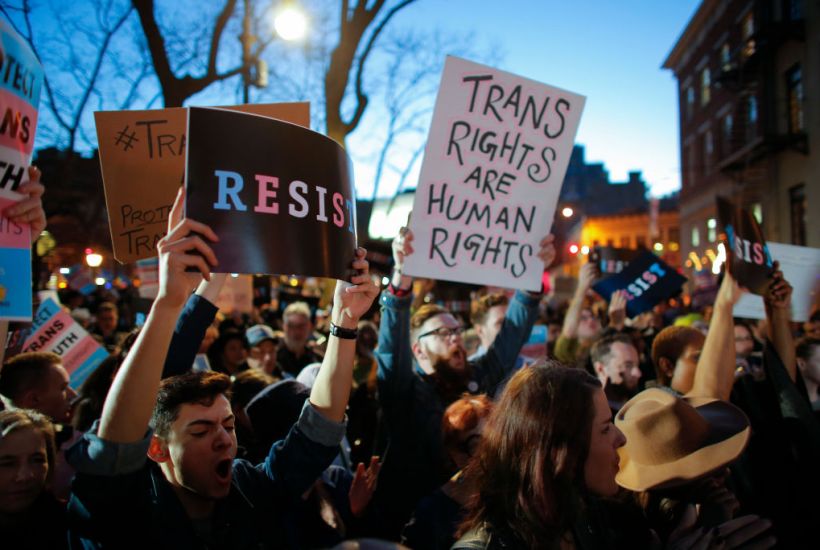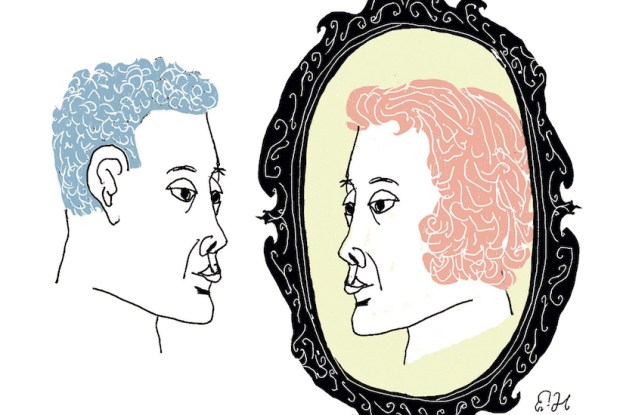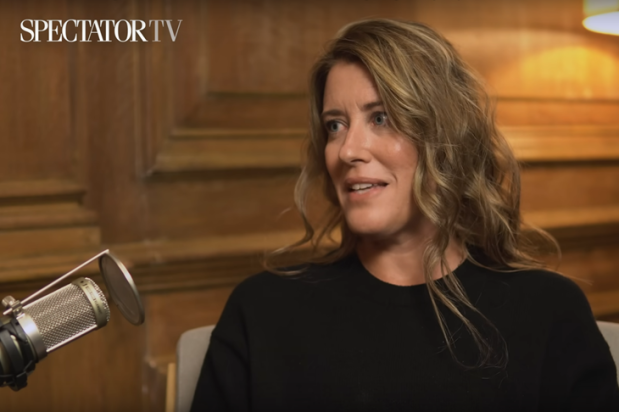The hyperbole of progressive feminism has provided a lot of fodder for conservative commentators. Just the mention of the “patriarchy” as a ubiquitous evil force is enough to bring spontaneous eye roll to many a political observer. So, in the left and right culture wars, it is fair to ask why a feminist philosopher has been in the direct firing line of the most woke of institutions?
Melbourne University vice-chancellor Duncan Maskell has released a warning shot in the ongoing culture war surrounding the definition of sex and gender1. In a draft “gender affirmation policy” Maskell has floated the possibility of restricting speakers or events on the university campus surrounding the topic of gender if they have “harmful” views. The assumed provider of the “harmful” views is feminist and Associate Professor of Political Philosophy, Holly Lawford-Smith.
If Duncan Maskell is interested in limiting the concerns of feminists in regard to gender ideology, he has reason to be nervous, especially if he is watching the victories of gender critical feminists in Britain recently. Maya Forstater, a woman who had her employment contract terminated in 2019, over “transphobic tweets” has just had a landmark victory. Forstater failed in her initial appeal to an employment tribunal, the judge declaring that her gender-critical views were “not worthy of respect in a democratic society”. She has now successfully contested the decision of the tribunal and has won the right for UK women to believe that “biological sex is real, important, immutable and not to be conflated with gender identity “. It is interesting to note that media outlets now refer to Ms Forstater’s tweets as “transgender tweets” rather than “transphobic tweets”. It feels like a tide turning.
The ruling has added to growing discomfort in UK companies relying on the advice of peak LGBTIQ activist organisation Stonewall. Concerns are now raised that some advice to affirm transgender-identified males, may see employers on the wrong side of the Equity Act in regard to the rights of women. Associate Professor Lawford-Smith has long been warning that there is a conflict between rights claims of transgender lobby groups and the rights of women.
The cries of “where are the feminists” are being answered by an unexpected dissident section of feminist philosophy that conservatives have been loath to align themselves with, and vice versa. “Radical” feminism has not drunk the Kool-Aid of gender identity because it is based in Marxist materialism and studies the oppression of women as a sex class (not a gender class). This inoculates them from the postmodern identarian restructuring of class analysis, or what the right call “cultural Marxism”.
Historically, progressives don’t own feminism any more than radical feminists do. The feminist critique of the “patriarchy” (the rule of fathers) as a social, cultural, and political system has been central to women’s activism and grew from the tension between women and the paternal state.
The temperance movement was one of the first political movements of women, and it came with successful philosophical arguments about the relationship of women to patriarchy. The feminists of the temperance movement were mostly church-going Christian women. They argued that if the state was to set a paternal wage policy that gave family wages to men, and barely a living wage to women, then it had a responsibility to restrain men from putting their wage into alcohol. Men using family wages on alcohol meant that some women were left without the resources to feed their family or the ability to protect themselves and their children from drunken, violent husbands. It was a compelling philosophical debate that led to prohibition in the United States and ultimately to the failure of the use of patriarchal or paternal philosophy in statehood and wage policy. Women insisted that if the state was a father to women, it should be a good father or a benevolent patriarch. Of course, this proved far too much work.
Since women have become full citizens, landowners and taxpayers, feminist philosophers have largely busied themselves with cultural representations of women or “gender”. The problem with Dr Lawford-Smith is that she insists that female people require legal definition on the basis on which her oppression is based, her biology. Dr Lawford-Smith investigates the cultural and ethical implications for the separation of women from their sex, and in her activism, she seeks to highlight how the changes in law to prioritise gender is affecting women.
We play the debate out in philosophy because no society has ever decided that a man can be a woman based solely on a declaration. Transgender activists ultimately demand that the transgender person (even though we don’t have a stable definition of that), must be taken at their word in regard to their “gender identity”, and that this identity should be considered exactly the same as their sex, in culture and on identity documents. The most controversial part of this is Self ID. This requires that on the power of a statutory declaration, any trans-identifying male should be considered a woman, not just in culture but in access to all spaces, facilities, institutions and sporting teams.
There are rumours that the Palaszczuk government is considering passing self ID legislation in Queensland before the end of the year, to join Victoria, Tasmania, South Australia and the ACT. Without an upper house in Queensland, this legislation can pass without debate and without consultation with women’s groups. In countries where this kind of legislation is subject to public consultation, and with full house debate, it is starting to fail. In the UK, Germany and Spain proposed gender self ID legislation has been defeated because of women’s rights concerns.
The standard argument gender critical feminists encounter is that there is no conflict between trans rights and women’s rights, because trans women are women, using a legal fiction to establish a philosophical premise. To support this argument, transgender activists frequently declare that there is no evidence that women are assaulted in women’s spaces by transgender individuals. This puts the onus of proof on women to show that they are at risk in a space that is no longer single-sex. Women’s comfort and dignity is never a consideration.
Of course, with the implementation of self ID throughout the world, there is now plenty of incidences of sexual assaults by trans-identified males in female places like prisons. But the gathering of this evidence makes women subject to social and legal censure. Women are risking arrest, cancelation, and financial ruin to show proof of their sexual vulnerability. They are again fighting with the state about their bodily vulnerability in order gain protection from male pattern violence. To be honest it is humiliating.
Dr Lawford-Smith has engaged in activism to address this argument that there is no rights conflict between women and trans-identified males. She has set up a website for women to document their experience in formerly single sex spaces (noconflicttheysaid.org). In the UK the evidence of male pattern violence in transgender women is hard to demonstrate when crimes by trans-identified males are reported as crimes by women. The website transcrimeuk.com attempts to record crimes by transgender individuals for the purpose of showing that male pattern violence does not abate with change in gender identity.
The gathering of this data and testimony is considered “transphobic” because it is said to demonise trans people. I understand how difficult this must be for reasonable and law-abiding trans-identified people, but when trans activists demand proof that trans identity does not abate male pattern violence, what alternatives are there but to gather evidence as an act of activism? The use of rape testimony as activism is an undignified position to place women in, but here we are yet again.
Given the rates of sexual assault and violence against women by males, we know that girls and women who are survivors of male sexual violence are on university campuses. I would like to ask Professor Duncan Maskell how he thinks that these women may feel, knowing that their sexual vulnerability can never be shielded with single-sex spaces or groups on campus? Or how women feel knowing that they are expected to suppress any discomfort they feel in the presence of trans-identified males when they are in states of undress or vulnerability on campus? Or that this very discomfort, fear and protective instinct women feel toward obvious males, is being called “transphobia”?
Women have their own needs, and people like Professor Maskell are placing the expression of these needs in conflict with trans-identified people. I don’t resent, dislike or fear tans identified males, it is just that they are categorically different from me in the same way that males are. And that this difference matters in the relationship I have with the state and society, and in the services that I require from the state and state-regulated organisations.
Even though I now politically sit more with conservatives, I stand with Holly Lawford-Smith against the new patriarchy of gender identity ideology, as it attempts to put its hand over the mouths of the political expression of women. I need to remind my conservative friends that the placing of gender identity in the state mechanism, in capital and in cultural institutions is a violation of the principles of the secular state. This is because the state is necessarily backed by the power of violence, that culture holds the power of social ruin and capital holds the power of financial ruin. Liberalism must resist the ideological infection of state. So as women once again drape themselves in the suffragette purple, white and green and scream about the patriarchy, you may have to stand with them. May I suggest a conference on the subject at Melbourne University? Maybe the IPA would like to organise it?
Edie Wyatt has a BA Hons from the Institute of Cultural Policy Studies and writes on culture, politics and feminism. She tweets at @MsEdieWyatt and blogs at ediewyatt.com.
Got something to add? Join the discussion and comment below.
Get 10 issues for just $10
Subscribe to The Spectator Australia today for the next 10 magazine issues, plus full online access, for just $10.

























Comments
Don't miss out
Join the conversation with other Spectator Australia readers. Subscribe to leave a comment.
SUBSCRIBEAlready a subscriber? Log in